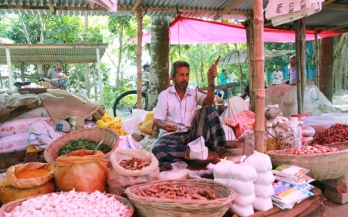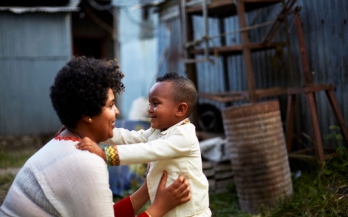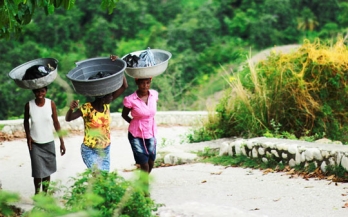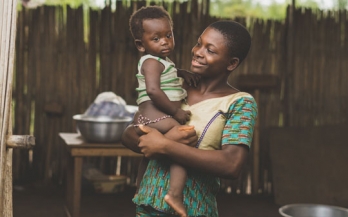This Focused Ethnographic Study (FES) used research modules derived from a cultural-ecological framework to examine infant and young child feeding practices, behaviours and beliefs from a household perspective.
In 2014, a Fortification Assessment Coverage Toolkit (FACT) survey was conducted across the state of Telangana, India. The main objectives of the survey were to determine the coverage of the take-home rations produced by AP Foods among target children and identify the major programme barriers and formulate recommendations for future programme activities.
A mixed-methods process evaluation was carried out to identify strengths and weaknesses in implementation, processes, and uptake of a micronutrient powder programme in Bangladesh.
In 2014, a Fortification Assessment Coverage Toolkit (FACT) coverage survey was conducted in Abidjan, Côte d’Ivoire. The main objectives of the survey were to determine the coverage of the fortified complementary foods among children 6-23 months of age in Abidjan and identify the major barriers to coverage of this programme and to formulate recommendations for future programme activities.
This project aimed to improve complementary feeding practices through the delivery of a micronutrient powder (MNP) and behaviour change communication messages distributed through the public health system. The objective of the endline survey was to examine the effectiveness of the programme by comparing the results of key outcomes indicators to those from a baseline survey in the same population.
The objective of the study was to learn about factors that facilitated or limited programme delivery and adherence to DESTA recommendations from the perspective of caregivers.
The objective of the baseline survey was to measure outcome indicators and to describe potential factors that might influence those outcomes other than the project activities. The baseline survey results will be compared to those from an endline survey in the same population to examine the effectiveness of the programme as part of an impact evaluation.
An endline survey was conducted as part of a programme evaluation for a project implemented by the Global Alliance for Improved Nutrition that aimed to improve complementary feeding practices through the delivery of micronutrient powder (MNP) and behaviour change communication activities to children 6–23 months old in three districts of Sofala Province, Mozambique.
A baseline survey was conducted as part of a programme evaluation for a project implemented by the Global Alliance for Improved Nutrition that aimed to improve complementary feeding practices through the delivery of micronutrient powder and behaviour change communication activities to children 6–23 months old in three districts of Sofala Province, Mozambique.
The objective of this study was to examine knowledge, attitudes and perceptions of mothers and fathers of young children, as well as program stakeholders in Vietnam, toward a logo developed for the national fortification program.










